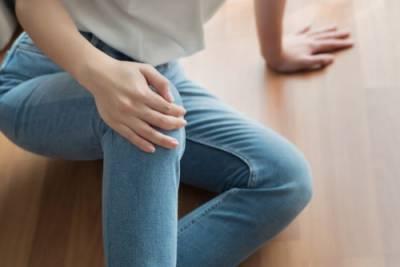When Is a Store Liable for Injuries in a Slip and Fall Accident?
 Even though fall accidents may seem like minor incidents, they can result in multiple types of serious injuries. A person who slips on a wet floor or trips over an obstacle can suffer bone fractures in the wrists, ankles, knees, or hips, traumatic brain injuries when they strike their head on the ground, spinal cord injuries, or dislocations in joints such as the shoulders or knees. When slip and fall accidents take place at a retail store, victims should be sure to understand when the store’s owner may be held liable for their injuries.
Even though fall accidents may seem like minor incidents, they can result in multiple types of serious injuries. A person who slips on a wet floor or trips over an obstacle can suffer bone fractures in the wrists, ankles, knees, or hips, traumatic brain injuries when they strike their head on the ground, spinal cord injuries, or dislocations in joints such as the shoulders or knees. When slip and fall accidents take place at a retail store, victims should be sure to understand when the store’s owner may be held liable for their injuries.
Property Owner Negligence and Premises Liability
Property owners must take reasonable steps to protect customers’ safety or anyone else who was invited to visit the property. This responsibility also extends to a tenant who is in control of property, including stores that lease space where they conduct business. An owner’s responsibility is known as a “duty of care,” and it requires them to correct any hazards that may endanger the safety of visitors or ensure that customers are warned about the potential risks that they may face due to these hazards.
There are multiple ways that a store owner may violate their duty of care, including:
-
Lack of floor mats at a building’s entrances - Many stores have floors that become slippery when wet. During rainy or snowy weather, water is likely to be tracked in through entrances, and this can lead to dangerously slick floors. Most stores use floor mats at entrances to absorb water and prevent these hazards from occurring. If the proper floor mats are not used, or if mats are defective and do not properly absorb water, customers will be likely to slip on the wet floors and suffer injuries.
-
Failure to clean up spills - Floors throughout a store may become slippery for a variety of reasons, including spilled products or beverages, leaking roofs or water pipes, or moisture from the mist in a grocery store’s produce section. If these spills are not cleaned up promptly, or if warning signs are not used to warn customers about potential slipping hazards, a store may be liable for accidents and injuries that occur.
-
Tripping hazards - Items that block a person’s walking path can lead to dangerous tripping accidents. These hazards may include electrical cords used to power equipment, merchandise that falls from shelves, or displays that obstruct aisles or other walking areas.
-
Damaged outdoor walking areas - Trip and fall accidents can occur if sidewalks are cracked or if parking lots have dangerous potholes. These types of accidents may become more likely if a store does not have sufficient outdoor lighting to ensure that people can see these hazards after dark.
Contact Our Will County Slip and Fall Accident Attorney
If you have suffered injuries because of slipping or tripping hazards at a retail store, Flaherty Law, LLC can help you determine whether you may be able to pursue compensation from the store’s owner. Attorney Daniel Flaherty can help you gather evidence to show that you were injured because of the property owner’s negligence, and he will work to ensure that you will be fully compensated for your damages. Contact our Plainfield premises liability lawyer at 815-577-7500 to arrange a free consultation.
Sources:
https://www.ilga.gov/legislation/ilcs/ilcs3.asp?ActID=2048&ChapterID=57
https://www.illinoiscourts.gov/Resources/18fd27de-6edb-4c7d-9ee5-8957f48f4568/120.00.pdf






